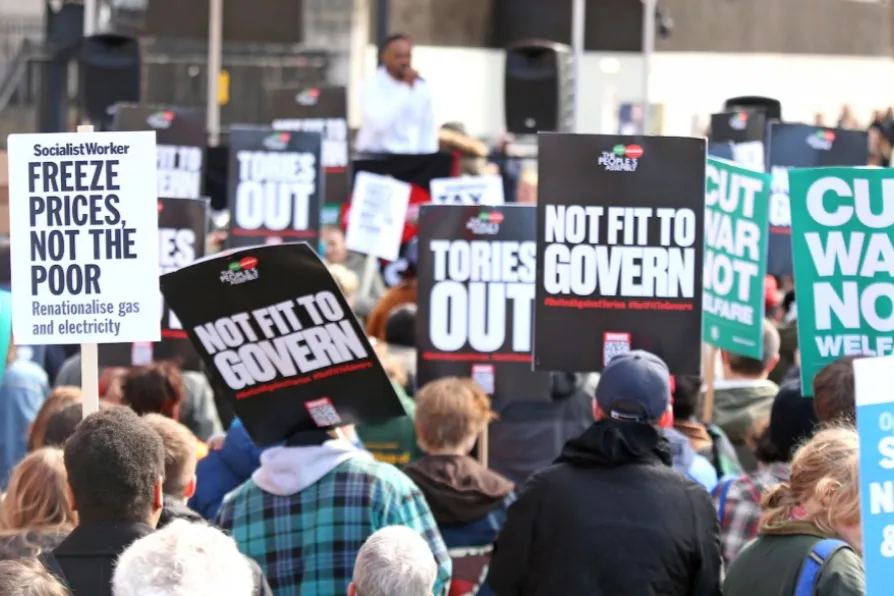The burden of debt falls heaviest on the poor

 Protesters near Downing Street in central London, at The People's Assembly Against Austerity protest to highlight those suffering hardship from the cost of living crisis due to the rise in fuel costs, food prices inflation and low pay, April 2, 2022
Protesters near Downing Street in central London, at The People's Assembly Against Austerity protest to highlight those suffering hardship from the cost of living crisis due to the rise in fuel costs, food prices inflation and low pay, April 2, 2022
IF ROUTINE debt is the reality for most working people today, for the rich it is a source of income.
For everyone servicing a mortgage, paying off a credit card, stuck with a car loan, owing an energy “supplier,” in arrears with the rent, facing decades of student debt, or in fear of a loan shark’s enforcers, the price of participation in today’s consumer society is the privilege of contributing to the income stream and profits of the very rich.
The generations of working people who remember the days when what family items of value they possessed spent more time in the pawnshop than they did in the home may be passing, but the memory of the humiliations that poverty imposes on working people remains.
Similar stories














